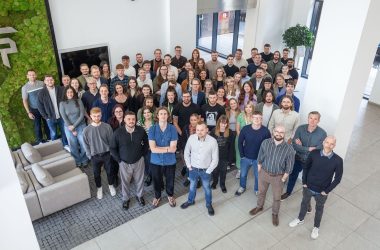Last Updated on: 22nd March 2024, 07:14 am
Organisations treasure their employees as their most prized resource. Attracting the right talent into a company necessitates a substantial investment of time, effort, and financial resources. While candidates expect to devote time to the recruitment journey, the prospect of incurring personal costs might not be as readily anticipated.
The financial toll of participating in interviews encompasses a variety of direct and indirect expenditures. Candidates might find themselves covering transportation fees, purchasing suitable interview attire, printing documents, investing in necessary technological equipment like webcams and microphones, buying materials or services for interview preparation, taking leave from their current jobs, and other sundry expenses such as meals or attending industry networking events.
Data from StandOut CV in 2023 indicated that 69% of hiring organisations were integrating video interviews into their selection processes. This trend has the potential to lower transportation expenses for candidates. Nonetheless, completing every phase of the interview process virtually is not yet commonplace. Many firms continue to value the opportunity to meet candidates in person, particularly for roles that necessitate a physical presence or a blend of onsite and remote work.
Fiona McDonald, Business Operations Manager at Walmsley Wilkinson Executive and Management Recruitment, asserts, “face-to-face interviews remain an integral part of the recruitment process. Whilst there may be an initial ‘getting to know you’ video call, there will often be at least one in-person interview and frequently more. In my opinion this is key, in helping to determine the fit for both parties.”
Research conducted by Trainline revealed that the average cost incurred by a candidate attending an interview is upwards of £100. With the option of remote work, candidates may need to undertake longer journeys from their homes to interview locations, which can significantly increase financial pressures from fuel and train ticket costs. Hence, ensuring that the recruitment process provides value for both employers and candidates is paramount.
Multinational companies with a history of relocating staff often have structured policies for travel and relocation expenses, aiding their recruitment efforts by facilitating or compensating for candidates’ travel costs.
Fiona McDonald elaborates, “It’s important that employers have an efficient and smooth recruitment process which is candidate focused, delivers a positive interviewee experience, and generates strong brand perception. Organisations need to mitigate the risk of causing a time and cost burden on their potential future hires, by putting the candidate experience at the heart of the recruitment process. An agile interview process contributes to a positive candidate experience, helps attract top talent, and positions the company as a desirable employer. It is an essential aspect of a company’s overall talent acquisition strategy.”
In an era where virtual meetings are standard, individuals looking to advance their careers are expected to embrace the opportunity to meet with potential new employers in person. Although there are costs involved, viewing these expenses as an investment in their future careers is advisable for candidates, with the potential to offset these outlays with their new role’s salary. Employers, meanwhile, should strive to provide a recruitment experience that respects and values the candidate’s participation, making interviewing a mutually beneficial investment rather than a contentious cost.









